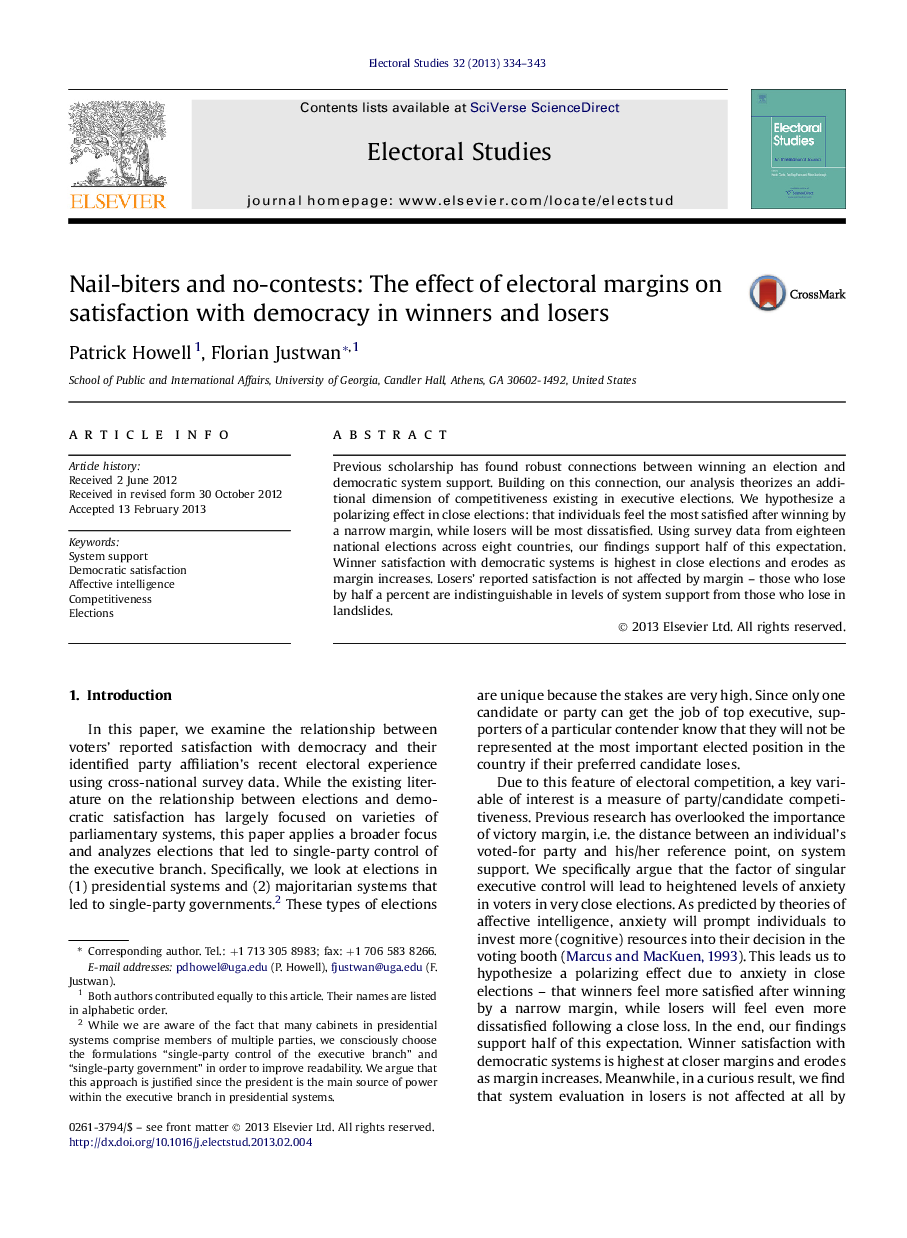| Article ID | Journal | Published Year | Pages | File Type |
|---|---|---|---|---|
| 1051874 | Electoral Studies | 2013 | 10 Pages |
Previous scholarship has found robust connections between winning an election and democratic system support. Building on this connection, our analysis theorizes an additional dimension of competitiveness existing in executive elections. We hypothesize a polarizing effect in close elections: that individuals feel the most satisfied after winning by a narrow margin, while losers will be most dissatisfied. Using survey data from eighteen national elections across eight countries, our findings support half of this expectation. Winner satisfaction with democratic systems is highest in close elections and erodes as margin increases. Losers' reported satisfaction is not affected by margin – those who lose by half a percent are indistinguishable in levels of system support from those who lose in landslides.
► We analyze survey data from 18 elections across 8 countries. ► We examine the impact of victory margin (vm) on voters' satisfaction with democracy. ► Vm is the distance between an individual's voted-for party and his reference point. ► We find that supporters of winning parties are most satisfied in close elections. ► Attitudes of supporters of losing parties are not influenced by margin of defeat.
